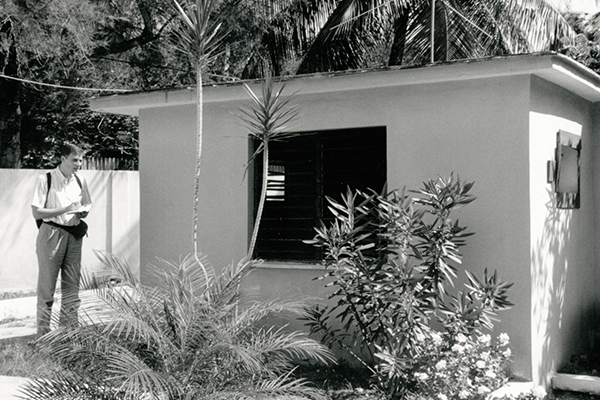
“What kind of prison do you keep Magic Johnson in?”
This startling question was asked by an HIV-positive person who is being held—against his will—in a special sanatorium for persons with HIV. The person had no idea that outside of his own country, persons with HIV can live in their own homes, continue working at their jobs, and can stay with their families and friends. Only in his country are persons who are HIV-positive quarantined for life.
The country is Cuba. It has the world’s most controversial system to control the spread of AIDS. The Cuban government requires almost every citizen in Cuba to be tested for HIV (the virus that causes AIDS). When a person tests positive, they are confined for a mandatory lifetime quarantine (with an occasional weekend pass). The Cuban solution to AIDS is to lock up all persons who have HIV.

Part of Cuba’s “solution” to HIV has backfired, however. Cubans have been lulled into believing that they do not need to protect themselves, because anyone who presents a risk of HIV has been locked up. Public health education in Cuba is ineffective against this dangerous perception.
The issue of AIDS in Cuba is an interesting examination of life in Cuba, where society has always taken precedence over individual human rights. Yet HIV in Cuba also raises several concerns for the United States itself:
- Tuberculosis is spreading rapidly in urban centers across the country. Part of the spread is attributable
to HIV infection (although HIV is not the only cause). Should the Cuban HIV camps serve as a model for similar institutions in the United States? - How should the U.S. care for persons with HIV and AIDS? Is it better to be a homeless person with
HIV in New York or to be confined for life in a Cuban sanatorium? - The United Nations General Assembly overwhelmingly condemned the United States’ 30-year embargo
against Cuba, focusing especially on recent legislation that penalizes foreign subsidiaries of U.S. companies
that do business with Cuba. How should the United States respond to this international criticism against the
blockade? What is the role of human rights in this process?
Professor Mark E. Wojcik visited three of the eleven sanatoria where HIV-positive persons are held in
Cuba. Tim Martin, Media Services Director, visited two of the sanatoria. Both Professor Wojcik and Mr.
Martin had extensive conversations with HIV-positive Cubans and with Cuban health authorities.

